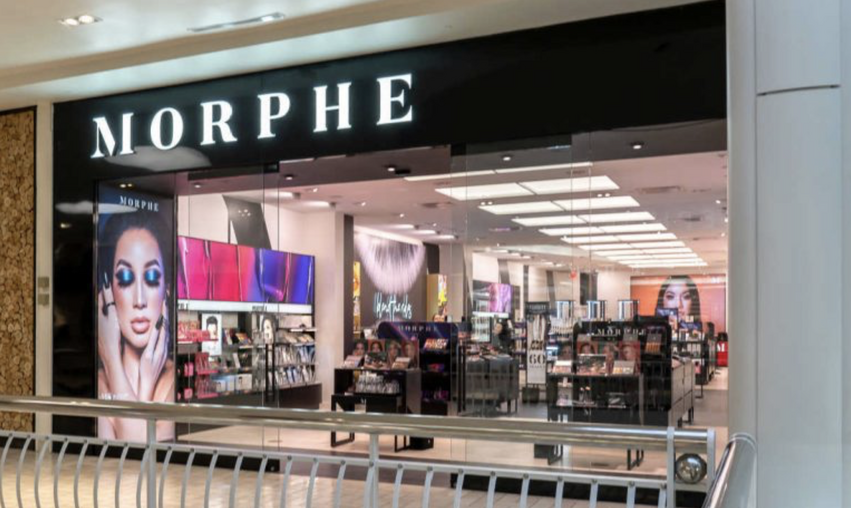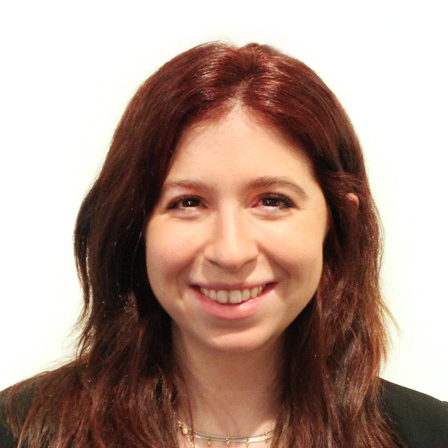
The Causes Of Morphe And We Are Fluide’s Troubles
The conditions of the market today are very different than the conditions many beauty brands encountered when they started, even pretty young brands. Succeeding in the market now means navigating escalated costs, fluctuating distribution pressures and inflation-weary consumers looking for value. For some, the demands have proved to be too crushing to continue doing business.
Beauty Independent’s recent In Conversation webinar covered factors that led to the troubles, including the shifting social media landscape and rising digital advertising fees, faced by We Are Fluide, a cosmetics brand that closed in December 2022, and Morphe, a makeup brand and former retail chain owned by Forma Brands, an incubator that filed for Chapter 11 bankruptcy in January and is being acquired out of bankruptcy for $690 million by its lenders Jefferies Finance LLC and Cerberus Capital Management.
Laura Kraber, founder of We Are Fluide, and Emine ErSelcuk, ex-VP of retail at Morphe, were candid during the webinar about their experiences guiding struggling businesses and strategies that may have rescued them.
We Are Fluide
After Kraber’s children exposed her to mounting conversations around queer identity and shifting gender norms, she launched the gen Z-targeted direct-to-consumer brand We Are Fluide in 2018. She says, “I just felt that there was such an open field of opportunity to connect with young people online around issues of identity, representation and beauty.”
We Are Fluide’s assortment was full of fun, colorful and sparkly cosmetics. It included mascara, lip gloss, eyeliner, nail polish, loose glitter, liquid lipsticks and eyeshadow palettes. Products were priced slightly higher than E.l.f. Cosmetics’ products to be reasonable for teenagers and young adults to buy.
Kraber, who previously worked in e-commerce startups and a digitally native supplement brand, was initially hopeful that We Are Fluide could be successfully scaled online. She quickly realized, though, that digital ads weren’t getting any more affordable. “It was just so much easier to build an audience at a very specific moment in time. I sort of assumed that that would continue,” says Kraber. “I didn’t realize how short-lived that moment would be.”

We Are Fluide turned to wholesale and gained a presence in brick-and-mortar boutiques along with Amazon and Walmart’s website. The plan was to eventually land on the shelves of a big mass-market retailer, but tight resources prohibited the brand from taking the next step.
“We didn’t raise money soon enough to aggressively pursue a retail strategy,” says Kraber. “I was very intimidated by what could go wrong in retail and the kind of investment that it would take to get into the mass market.”
We Are Fluide required investment to grow, but wasn’t reaching enough sales to be attractive to investors. The tricky situation wore on Kraber. We Are Fluide was just breaking even when she decided to close it. “It wasn’t the business I had wanted to build, and I didn’t want to keep working as hard as I was to be in this holding pattern we were in,” she says. “Burnout is just as dangerous as all the other things that can go wrong.”
Kraber theorizes that having a co-founder or operator with beauty industry expertise could’ve helped her see red flags in the business sooner. ErSelcuk suggests complexion products and products in other categories consumers stick to and regularly replenish should’ve been an element of We Are Fluide’s product mix to rev up customer loyalty. She says, “If you’re just creating newness, you’re replacing newness, and you can’t kind of build and get scale.”
Morphe
ErSelcuk, a beauty industry veteran who’s had stints at prominent beauty companies such as Bare Escentuals, Kendo Brands, Estée Lauder and more, joined Morphe in 2016 as the brand was forming affiliate marketing partnerships with beauty influencers commanding sizable audiences, notably James Charles, Jaclyn Hill and Jeffree Star.
She says, “That allowed the company some unique data points where we were able to see who was driving what commercially…We’d then develop products with them and create collabs that ultimately became like sub-brands.”
The partnerships, coupled with the brand’s accessible mass pricing and its nimbleness in responding to trends, propelled Morphe to $550 million in sales during ErSelcuk’s three-year tenure at the company. In 2019, Forma was valued at $2.2 billion when private equity firm General Atlantic obtained a majority stake in it. Morphe’s wholesale relationship with Ulta Beauty also contributed to sales acceleration, and wholesale was a meaningful element of its business.
Before leaving the company in 2019, ErSelcuk spearheaded the opening of 50 branded storefronts largely in indoor malls. “We were building out what we felt was a big opportunity, which was to create the retailer of choice for gen Z,” she says. “We felt that there wasn’t a multibranded entity out there either online or in-store that really delivered for this younger consumer.”
For the stores, Morphe onboarded relevant third-party brands to broaden its assortment and propel traffic online and into stores. The brand’s Burbank store was one of its highest performing units, netting over $10 million in sales.
ErSelcuk believes that Morphe’s failure to stay agile and diversify its business in a changing market was responsible for its downfall. This strategic oversight took on a few forms.

Eyeshadow palettes were Morphe’s top-selling branded products even as sales for the product sub-category were falling elsewhere in the industry before the pandemic. ErSelcuk explains that the productivity of those items caused company to have a false sense of security about its business model.
She says, “The reality is that, when you’ve got a significant part of your business baked into any one channel, product or digital strategy, there needs to be recognition of a contingency plan if things all go to hell.”
Influencers that were once assets to Morphe later became liabilities. ErSelcuk recounts that having Charles, Star or Hill at a Morphe store opening typically drew 5,000 to 10,000 visitors, but, as the influencers became ensnared in controversies, the blowback was intense for Morphe, and it was forced to cut ties with formidable sales producers.
The brand’s DTC channel got lost in the mix as wholesale was prioritized by management, according to ErSelcuk. She says, “In retrospect that was potentially a risk because we had full control over DTC. We obviously had greater margins, and it provided the company with tremendous data points that we could then apply out to other channels.”
Morphe shuttered all of its nearly 20 stores in the United States in early 2023 to focus on e-commerce and wholesale distribution. Forma’s bankruptcy followed. ErSelcuk says, “We had over a thousand employees in the stores and these huge leases that we weren’t able to get out of. It’s not surprising that the Chapter 11 filing happened.”





Leave a Reply
You must be logged in to post a comment.